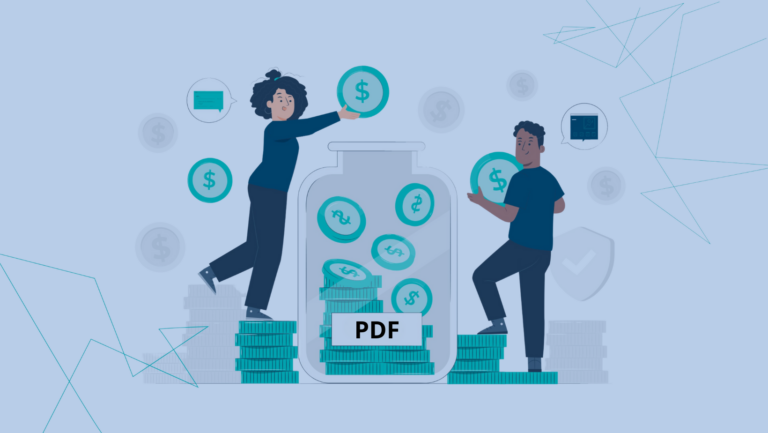The year has started with some notable legislative developments in the digital space. Explore the new web regulations to watch in 2023.
Since the beginning of 2023, the legal framework for regulating the web has undergone major changes. Both in France and across Europe, the aim is to make the online experience safer, more responsible and more secure. We are over halfway through the year, so let’s take a look at what has changed in recent months regarding the new 2023 regulations.
The goals of the new web regulations 2023
The 2023 legislation aims to make digital technology more responsible. The EU has put forward proposals to regulate digital markets. With this effort, the European Commission is specifically targeting the GAFAMs – Google, Amazon, Facebook, now Meta, Apple and Microsoft. They are accused of monopolising and competing unfairly. Greater transparency of their activities is expected.
In France, the implementation of the new regulations aims to strengthen the protection of internet users against the risks of the web. Adopted by the Senate on 5 July, it is designed to make internet use safer and to combat the rise of digital insecurity, which threatens trust in the digital world.
It is based on three main principles: the protection of citizens, the protection of children and the protection of businesses and local authorities. In short, this law aims to create a safer digital environment for everyone, while combating the abuses of large digital companies.
What are the new internet laws in France?
The REEN law
The REEN law, which comes into force in November 2021, is a milestone in enabling digital progress with minimal environmental impact. This will be achieved by promoting more responsible digital practices.
In 2023, new regulations have been introduced to give a decisive boost to the campaign. This year, the law comes with more ambitious targets:
- Commitment for digital players to adopt more responsible strategies
- Raising awareness of environmental impact in education
- Fighting programmed obsolescence by curbing the constant renewal of digital devices – instead promoting a more sustainable approach to technology consumption
- Adopting energy-efficient practices in data centers and networks
- Adopting greener digital practices
The DSA (Digital Services Act)
The Digital Services Act (DSA) could serve as a model for global regulation of the Internet, along the lines of the European General Data Protection Regulation (GDPR).
The DSA covers online platforms such as social networks and marketplaces.
Its main aim is to ensure transparency and accountability for the content shared by users. It also aims to protect consumers from misleading commercial practices. To combat the spread of illegal content, the law aims to harmonize national rules across EU member states.
At the end of August, digital giants like Twitter will have to comply with this new European law. But from February 2024, all platforms will be subject to the same exercise.
The DMA (Digital Markets Act)
The Digital Markets Act aims to ensure fair competition in the digital sector. Coming into force on 2 March 2023, it specifically targets anti-competitive practices by GAFAMs, limiting their ability to unfairly promote their products and services.
The European Accessibility Act (EAA)
The EAA guarantees accessibility for people with disabilities in EU member states. This law sets accessibility standards for digital products and services to make them accessible to everyone, including people with visual, hearing or motor disabilities.
The EAA is part of the DADUE law – promulgated on 24 January 2023. It brings French legislation into line with EU Directive 2019/882 on the accessibility of products and services.
Several measures are expected, including:
- Extending accessibility requirements to a wider range of products and actors
- Tougher penalties for non-compliance with accessibility rules
The new rules will enter into force on 28 June 2025.
| Did you know? To guarantee equal rights and inclusion for people with disabilities, the law of February 11 2005, introduced an accessibility obligation for the digital platforms of the State, local authorities and public institutions that depend on them. The law on accessibility was extended to the private sector, in particular companies with an annual turnover of at least 250 euros, by a decree of 24 July 2019. |
The AI Act – legislation on artificial intelligence
The European Union adopted this law on 21 April 2021 to harmonise the rules governing AI technologies and ensure safer use of these tools.
Through harmonisation, the European regulatory framework promotes technological progress while protecting fundamental rights. This will allow AI developers to follow more specific requirements, including risk management, data governance, technical documentation, transparency guidelines, accuracy standards and cybersecurity.
Other initiatives in the government’s 2023 roadmap
On 7 July 2023, important legislation was passed to establish a digital majority and combat hate online. This legislation was published in the Official Journal the following day, 8 July 2023.
New initiatives are planned for 2023.
A cyberscore
From 1 October, a new cybersecurity certification, the cyberscore, will be applied to increase the transparency of digital platforms. This indicator covers various online platforms, including social networks, instant messaging services, search engines and video conferencing sites.
Platforms will now be required to display their level of security using a visual rating system similar to Nutriscore, ranging from A (very good) to E (very poor), allowing users to easily assess the security measures in place.
An anti-scam filter
The anti-scam filter is designed to alert users when they are accessing potentially fraudulent or dangerous sites, giving them the choice to continue or opt out. The filter is based on a blacklist system that identifies platforms susceptible to cyber threats such as phishing, viruses and ransomware.
Use of the filter is optional; if enabled, the filter will operate as soon as a blacklisted site is detected. The filter is currently under development, with a preliminary version planned for September-October 2023 and an official launch in 2024.
Digital majority at 15
The law of 7 July 2023 strictly regulates the age of registration on social networks, setting a minimum age of 15 for all access. This measure aims to protect young people from online threats such as cybercrime and cyberbullying.
The law promotes better prevention and repression of cyberbullying by imposing certain obligations on online platforms, such as broadcasting messages to prevent cyberbullying and making it easier for users to report illegal content. The initiative will also address other issues such as screen addiction, sleep disorders, misinformation and exposure to inappropriate content.
This brings us to the end of our overview of the new Web Regulation 2023. A set of rules that support the protection of users’ rights and privacy, while promoting fair competition and inclusion in the digital space.
In response to this legislation, websites must comply with specific requirements to ensure a harmonious digital environment for all. This means that the French Digital Act 2023 should not only comply with the European directives but also reinforce them with increased control and appropriate sanctions.
The future of digital technology is bright. If everyone gets onboard, we can already look forward to healthier, safer and more responsible spaces in the coming months.













